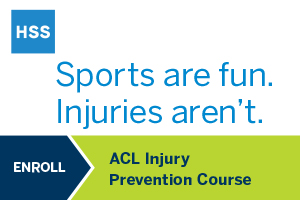The Assistant Coach: An Official's Friend or Foe?
By Kevin Wilson on November 11, 2015 officials Print
The coach/official relationship is a challenge in every sporting contest. From the coaches meeting prior to the contest through the final buzzer, the communication and interaction of the head coach and the officials is a key element to game management. The other adults on the team bench seem to fall into a gray area for many officials. Some officials describe the assistants as a pain; some think of them as an asset to use and others don’t even give them a second thought.
The assistant coach has a differing role in each sport. In some sports, the assistants are expected to be active participants working with the student-athletes during live action (e.g., baseball and softball). In a sport such as football, the assistant coach can communicate with the players from the team box. In basketball, the rules book encourages the assistant to remain seated and to not engage an official. How then, should an official approach an assistant coach?
Most basketball officials acknowledge the assistant coaches during the pregame warmup. It may be a verbal hello, a handshake or just a head nod but it allows both parties have a momentary rapport. The challenge comes during live-ball action when an assistant stands to coach one of the team’s players or makes a comment to the official. In such a situation, it is important that the official find a way to approach the head coach during a dead ball and request that the head coach maintain bench decorum and protocol with the assistants. One of the best ways to do this is by asking, “Coach, can you help me? I need to make sure your assistants remain seated except during time-outs.” Done calmly and professionally, most coaches will assist.
Sometimes it is appropriate during a time-out for an official to approach an assistant coach and ask for help. It may be to discuss the actions or words of one of his or her players and ask that he or she talk to the athlete. It may be to address a time-out issue or some other game management item that isn’t important enough to pull the head coach away from the team huddle. However, officials shouldn’t expand interaction with the assistants to a level where they begin to violate the bench rules and force officials to penalize them.
In football, officials find it valuable to use at least one of the assistant coaches every game. They are usually known as “get back” coaches and it is their responsibility to keep the team box and sideline area in compliance with the rules. They can also assist with coaches, players, team attendants, statisticians and other personnel. For the wing officials on a football crew, assistants can be their best friends during a game. Greeting them before the game and then asking them to help keep the area clear goes a long way toward allowing sideline officials to work a more effective game. Having a relationship with that coach can solve most issues, including keeping the head coach calm. Sideline warnings and penalties should be rare in a season where the wing officials engage their assistant coaches well.
In baseball, base coaches are often not the team’s head coach and are near the umpires on the field. Sharing information about player actions and comments can help diffuse situations before they escalate into a penalty on the player or a negative interaction with the head coach. Determining the line officials must set with those coaches is a challenge for every umpire and must be set the same for all assistants, whether an official has worked with them for years or this is the first time they have met.
Most assistant coaches are hard working men and women with a passion for high school sports and only want to support their student-athletes. The emotion of the game can carry them to behavior that falls outside that permitted by the rules. Officials must understand those rules and yet also realize that a professional working relationship with an assistant coach can make the difference in the game management of a contest. Believe the assistant coach is your friend, until they act in a manner that proves they prefer to be the foe. The official then must act accordingly.
Kevin Wilson
Kevin Wilson is a multi-sport official from Indiana. He has served as a mentor for younger officials and as an officer and committee chair with the Mid Hoosier Officials Association. Wilson is an avid motorcyclist and provides investment and insurance advice to senior citizens. He was selected to work an Indiana High School Athletic Association baseball state championship game in 2015.
Most Recent Articles
- nfhs news NFHS Learning Center Unveils School Honor Roll Program
- NFHS Network Contact Information
- nfhs news Shout-out to Health-Care Workers and State High School Associations
- state news Stadiums Across Colorado Light Up to Show Support for Students
- gymnastics-girls article ‘They became a family’: How New Castle gymnastics qualified for state for first time since 2002



